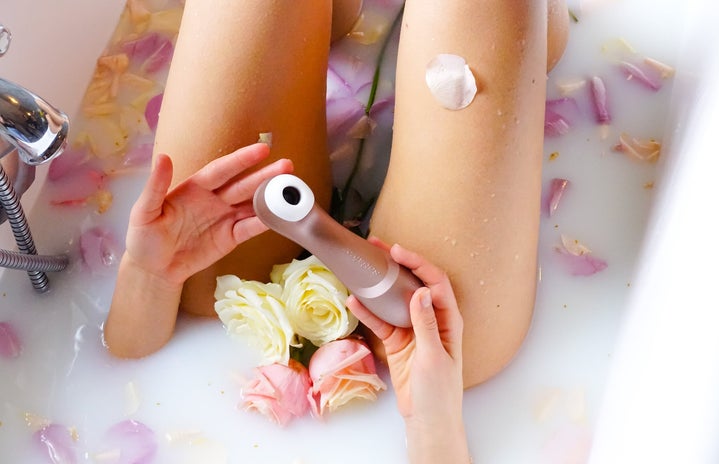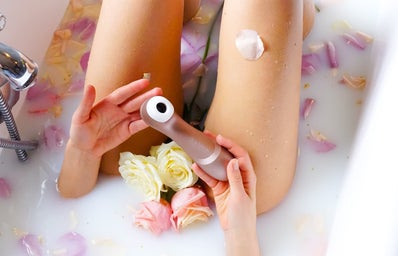Many of us with vaginas and clitorises are often made to internalise the fact that pleasure isn’t a thing for us. While it is normal for individuals with penises to explore their sexualities and further perfect the art of masturbation, vaginal and clitoral stimulation still continues to be a mystery for quite a few people. Even though heterosexual relations are the ones that are known to be phallocentric, a lot of us with vaginas (including myself) would say that even lesbian sex, at times, gets awkward when we have to guide our sex partners about “how to find the clitoris”. The awkwardness, more often than not, increases when the topic of oral sex comes up, especially with strangers.
It is, by now, quite well known that most people with vaginas find it difficult to orgasm with just penetrative intercourse. Yet, cunnilingus is still not as normalised as it ought to be considering how essential it is for one to be able to climax. To make matters worse, many AFABs, from a very young age, are conditioned into believing that their vaginas have an unpleasant odour and taste. This is something that usually stops them from asking their partners if the latter would be willing to perform oral sex on them. Even if some people do end up having that conversation, some of them get manipulated by their partners into thinking that they are too hard to please or that vaginas, in general, are unhygienic organs that do not deserve oral stimulation. Perhaps that’s why most of us might have at least one heterosexual female friend who has never received head.
The question that all of this raises is about whether or not vaginas actually have an odour and taste that are as terrible as they are usually made out to be. Claire Gillespie quotes the author of She-ology (2017), Sherry A. Ross in their writing while mentioning how vaginas aren’t supposed to “smell like rose gardens”. Ross also explains that every person’s vagina has a different scent which changes regularly depending on factors relating to one’s diet, hygiene and new sexual partners. Alongside Ross, there are many other healthcare experts like Dr. Mary Jane Minkin who have all agreed on how vaginas can have different smells, but they can still never have the scent of “fresh flowers”.
Keeping all of the aforementioned points in mind, those who capitalise on the insecurities of individuals with vaginas must be called out instead of being promoted. Among the ones who top that list are the Kardashians, particularly Kourtney Kardashian who recently launched a new product to “turn it (one’s vagina) into a sweet treat”. As ridiculous as it sounds, Kardashian’s vaginal health gummies promise to improve the organ’s “freshness and taste” with the tagline being “you are what you eat”.
Vaginas aren’t imperfect or flawed organs that require refinement or taste enhancement. People with vaginas don’t need to put in extra effort or spend exorbitant amounts of money to increase their desirability. They should, instead, be allowed and even encouraged to explore and experiment with their sexualities without opportunists like the Kardashians constantly making them feel ashamed for how their vaginas taste and smell.


